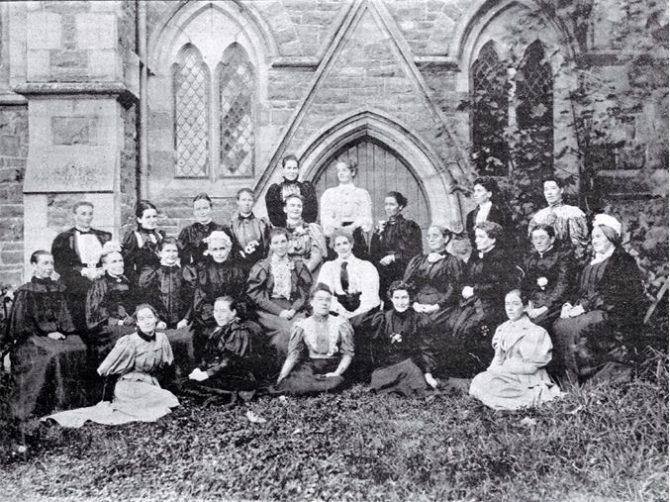We celebrate the 130th year of women's suffrage in New Zealand with a series of posts about local suffrage campaigners.
Sarah Saunders, daughter of Rhoda Flower and Alfred Saunders, was born in 1863 into a radical free thinking Quaker family and continued throughout her life to shake up and challenge attitudes with her strong convictions. Ultimately her socialist views may have been too radical for the Labour Party but she certainly affected change along the way!
So what did Sarah stand for?
- Peace (anti-militarism)
- Temperance/ Prohibition
- Education
- Equality
- Socialism
Sarah began her career as a teacher and in 1884, aged 21, she became head of the new girl’s department at Ashburton High School. She was involved in (holding the positions of Secretary and President) the Canterbury Women’s Institute and the National Council of Women (Secretary). She helped organise anti-military campaigns, and large public meetings, fighting against compulsory military training and conscription. As well as peace campaigns Sarah was a strong voice speaking out for temperance, equality for women, and education for all. With Ada Wells she was an organiser and strongly advocated for women’s rights and change. She was a strong believer in socialism and governmental ownership with shared use of land, housing, childcare, kitchens, laundries and playgrounds. She was involved in local politics, unsuccessfully contesting the St Albans seat in the 1919 Christchurch City Council elections. In 1922 Sarah won a seat on the North Canterbury Hospital Board.
In 1896 Sarah married Samuel Page and had 2 sons Robert (Robin) and Alfred (Fred). Her son Robin was imprisoned as a conscientious objector in 1918 while her son Fred started the “No More War” movement which Sarah became involved in. Fred died in Paris in 1930.
Sarah was judged by some as “unladylike” in her vocal support of anti-militarism and she was certainly treated more leniently by law enforcement than her male counterparts, some of whom were imprisoned for sedition. Because of the double standard she thought it was a woman’s duty to speak out. Sarah died in Christchurch on 20 January 1950, and is buried in Sydenham Cemetery with her family.
Find out more
- Page, Sarah – Dictionary of New Zealand Biography – Te Ara
- Sarah Saunders Page: A courageous advocate for peace · Women peacemakers · Voices Against War
- Take our Women's suffrage quiz
- More posts about suffragists
Trudy
Family History Librarian



Add a comment to: Sarah Saunders Page: Too radical